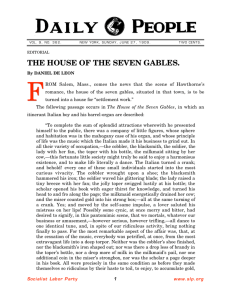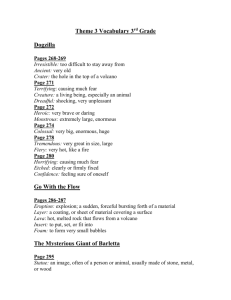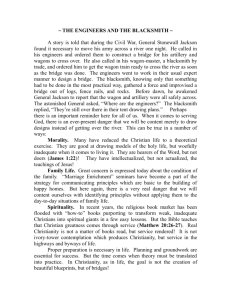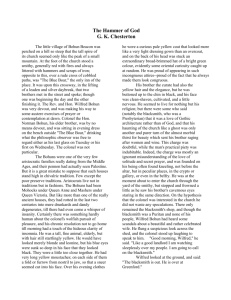the arched window - Musical Box Society International
advertisement
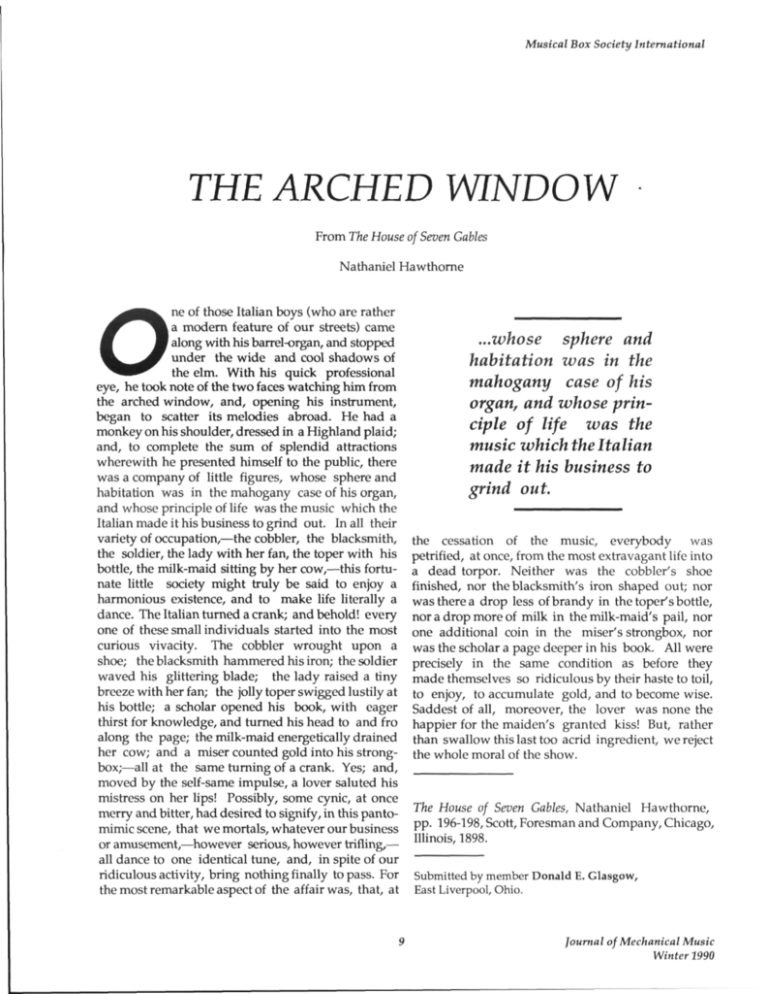
Musical Box Society International THE ARCHED WINDOW From The House of Seven Gables Nathaniel Hawthorne ne of those Italian boys (who are rather a modern feature of our streets) came along with his barrel-organ, and stopped under the wide and cool shadows of the elm. With his quick professional eye, he took note of the two faces watching him from the arched window, and, opening his instrument, began to scatter its melodies abroad. He had a monkey on his shoulder, dressed in a Highland plaid; and, to complete the sum of splendid attractions wherewith he presented himself to the public, there was a company of little figures, whose sphere and habitation was in the mahogany case of his organ, and whose principle of life was the music which the Italian made it his business to grind out. In all their variety of occupation,—the cobbler, the blacksmith, the soldier, the lady with her fan, the toper with his bottle, the milk-maid sitting by her cow,—this fortunate little society might truly be said to enjoy a harmonious existence, and to make life literally a dance. The Italian turned a crank; and behold! every one of these small individuals started into the most curious vivacity. The cobbler wrought upon a shoe; the blacksmith hammered his iron; the soldier waved his glittering blade; the lady raised a tiny breeze with her fan; the jolly toper swigged lustily at his bottle; a scholar opened his book, with eager thirst for knowledge, and turned his head to and fro along the page; the milk-maid energetically drained her cow; and a miser counted gold into his strongbox;—all at the same turning of a crank. Yes; and, moved by the self-same impulse, a lover saluted his mistress on her lips! Possibly, some cynic, at once merry and bitter, had desired to signify, in this pantomimic scene, that we mortals, whatever our business or amusement,—however serious, however trifling,— all dance to one identical tune, and, in spite of our ridiculous activity, bring nothing finally to pass. For the most remarkable aspect of the affair was, that, at O ...whose sphere and habitation was in the mahogany case of his organ, and whose principle of life was the music which the Italian made it his business to grind out. the cessation of the music, everybody was petrified, at once, from the most extravagant life into a dead torpor. Neither was the cobbler's shoe finished, nor the blacksmith's iron shaped out; nor was there a drop less of brandy in the toper's bottle, nor a drop more of milk in the milk-maid's pail, nor one additional coin in the miser's strongbox, nor was the scholar a page deeper in his book. All were precisely in the same condition as before they made themselves so ridiculous by their haste to toil, to enjoy, to accumulate gold, and to become wise. Saddest of all, moreover, the lover was none the happier for the maiden's granted kiss! But, rather than swallow this last too acrid ingredient, we reject the whole moral of the show. The House of Seven Gables, Nathaniel Hawthorne, pp. 196-198, Scott, Foresman and Company, Chicago, Illinois, 1898. Submitted by member Donald E. Glasgow, East Liverpool, Ohio. Journal of Mechanical Music Winter 1990
